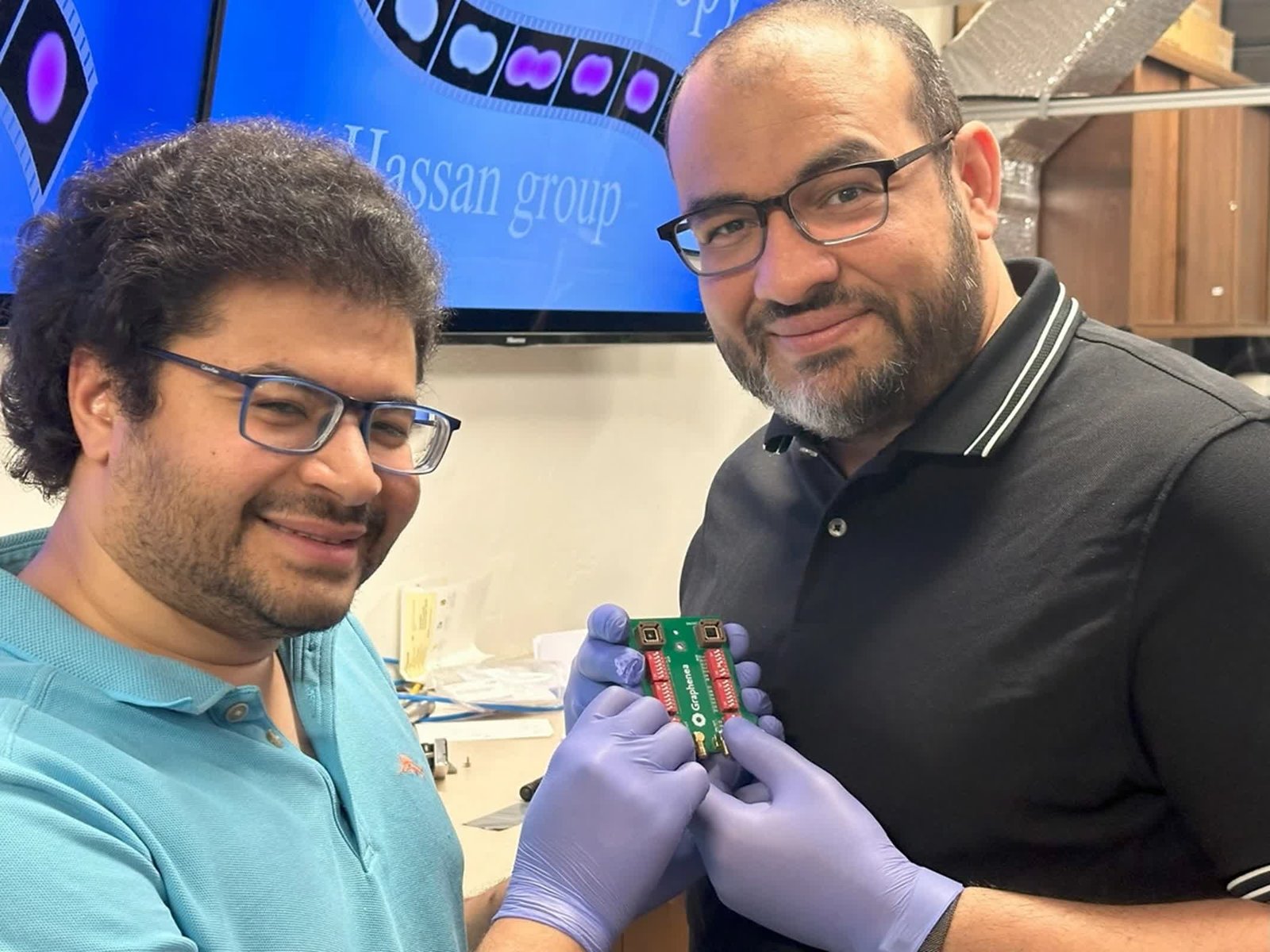A breakthrough unveiled by a team of scientists could potentially revolutionize computer processing speeds to levels millions of times faster than current technology.
Researchers at the University of Arizona, in collaboration with international partners, have discovered a method to use ultrafast pulses of light to manipulate electron movement in graphene, a material that is only one atom thick.
Published in Nature Communications, the research showcases how electrons can bypass barriers almost instantly by directing laser pulses lasting less than a trillionth of a second at graphene. This phenomenon, referred to as quantum tunneling, has fascinated physicists for a long time, and the team’s ability to observe and control it in real-time is a significant achievement.
Mohammed Hassan, an associate professor at the University of Arizona, believes that this breakthrough could lead to processing speeds in the petahertz range, over a thousand times faster than current computer chips. This leap could transform various fields such as artificial intelligence, space exploration, chemistry, and healthcare.
Hassan, known for developing the world’s fastest electron microscope, collaborated with researchers from various institutions to study how graphene conducts electricity under laser light. By modifying graphene samples, they discovered that a single electron could tunnel through the material, leading to the creation of the world’s fastest petahertz quantum transistor.
Using a graphene phototransistor enhanced with a silicon layer, the scientists exposed it to a laser switching on and off at a rate of 638 attoseconds. This resulted in a transistor capable of operating at petahertz speeds, a remarkable achievement previously considered unattainable.
Unlike many scientific advancements that require controlled environments, this new transistor functions in everyday conditions, making it adaptable for commercial use in future electronic devices.
Hassan and his team are collaborating with Tech Launch Arizona to patent and commercialize their innovation, with plans to develop a version of the transistor that can operate using standard commercially available lasers, making the technology more accessible to industry partners.
